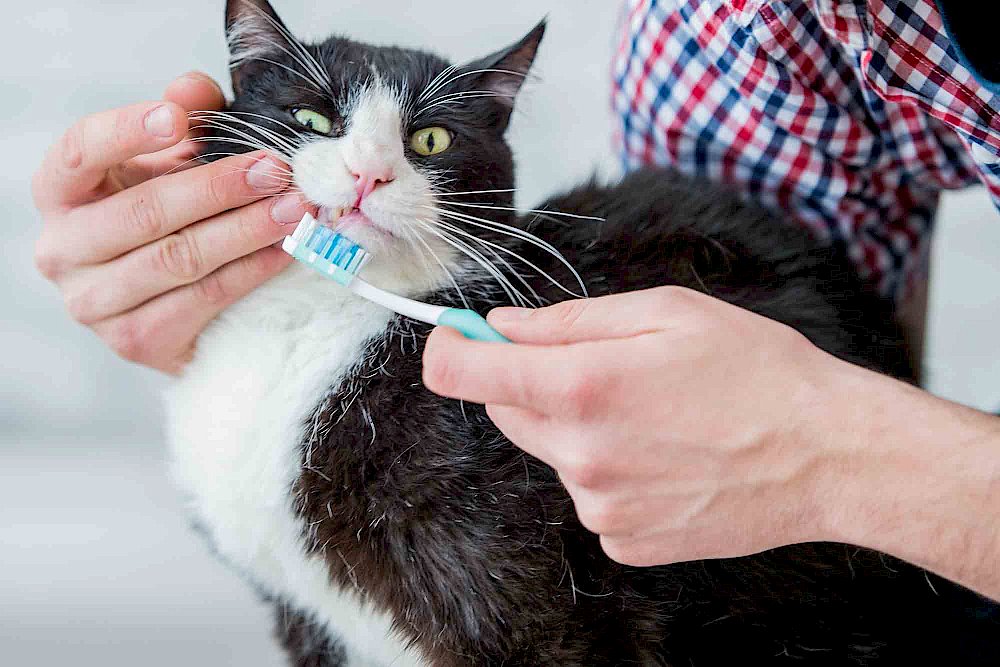Year-Round Pet Dental Health: Your Secret Weapon

Pet dental disease is one of the most common problems that dogs and cats face in their lifetimes. By the time they are 3 years of age, 85% of dogs and cats have some form of pet dental disease. This problem not only causes things we can easily notice, like bad breath, but it also leads to more subtle changes that are hard to spot until they become big issues.
Your team at Brodie Animal Hospital knows that pet dental health is one of the most important ways to give your furry friend good health and happiness, and we want to help you ensure your pets have healthy teeth and gums.
Dental Disease Basics
Bacteria in the mouth causes plaque to form on the teeth and at the gum line in dogs and cats. If left untreated, tartar develops. Once tartar is present, it can get under the gum line and cause gingivitis.
If gingivitis goes untreated, it will result in periodontal disease, which can destroy underlying structures, including the tooth root and even the bone below.
Bacteria from the mouth doesn't stay in the mouth, though. In fact, it can enter your pet's bloodstream, ultimately affecting internal organs, like the kidneys, liver, and heart.
There is some evidence that periodontal disease shortens the lifespan of cats and dogs.
Signs of Dental Disease in Pets
Dental diseases can be hard to spot, which is why it is important to get regular dental cleanings. You may think of them as normal. Your pet may even hide signs from you, as they have a deep and natural survival instinct to mask pain and discomfort. Dental disease is progressive and painful, however, and is important to treat early.
Signs of dental disease may include:
- Bad breath
- Drooling
- Pawing at the mouth
- Chewing on one side of the mouth, or messy eating
- Red, swollen, or bleeding gums
- General irritability or hiding (cats)
What You Can Do: Pet Dental Health
Although common, the good news is that dental disease is largely preventable. Because many of the signs of dental disease are so often missed at home, it's essential to have regularly scheduled exams for your pet, even if they seem well. Preventive care means we catch small problems before they become larger issues, and this can happen at any time of the year.
Older pets, cats, and those with active dental disease or specific dental issues may benefit from twice-yearly exams and cleanings. During your pet's exam, we'll talk about their dental health and their lifestyle and come up with a plan for great dental health moving forward.
Give us a call with any questions about pet dental care at home or professional dental cleanings. We're looking forward to giving your pet a lifetime of good health.

